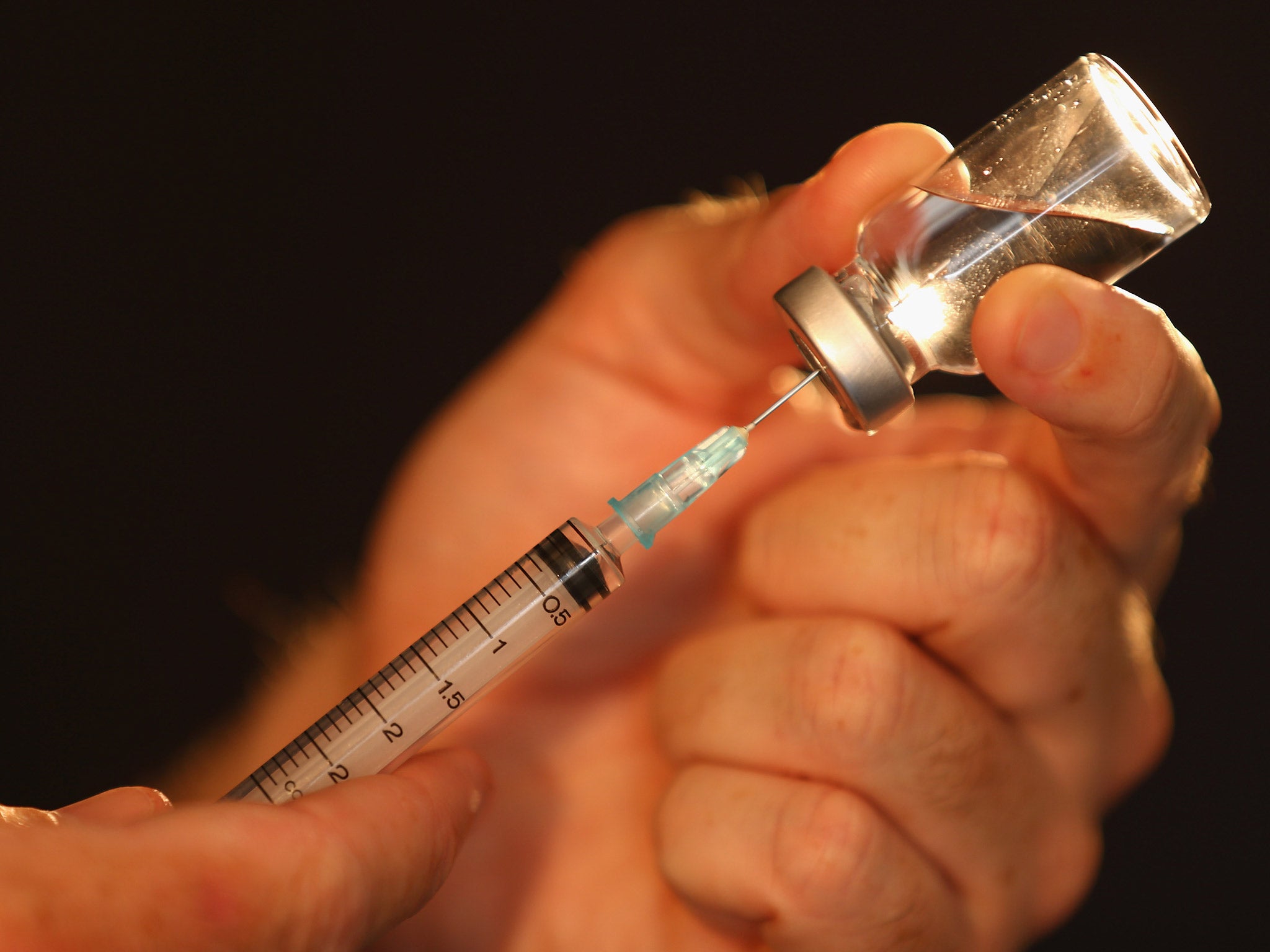These pharmaceutical companies have allowed children to die because of corporate profiteering
In the world’s poorest countries, it is now 68 times more expensive to vaccinate a child than it was in 2001

Your support helps us to tell the story
From reproductive rights to climate change to Big Tech, The Independent is on the ground when the story is developing. Whether it's investigating the financials of Elon Musk's pro-Trump PAC or producing our latest documentary, 'The A Word', which shines a light on the American women fighting for reproductive rights, we know how important it is to parse out the facts from the messaging.
At such a critical moment in US history, we need reporters on the ground. Your donation allows us to keep sending journalists to speak to both sides of the story.
The Independent is trusted by Americans across the entire political spectrum. And unlike many other quality news outlets, we choose not to lock Americans out of our reporting and analysis with paywalls. We believe quality journalism should be available to everyone, paid for by those who can afford it.
Your support makes all the difference.Pneumonia is a killer disease that causes the deaths of one million children every year, even though we have the medicine to immunise against it. Both Pfizer and GlaxoSmithKline sell an effective vaccine but many countries are unable to introduce the vaccine because of the price. Children’s lives are being lost because of corporate profiteering.
Why is the price of the pneumonia vaccine so expensive? Because the market is controlled by just two drug companies. Pfizer has by far the largest market share, having made a whopping US$25 billion in sales from the pneumonia vaccine since 2009; UK-based GlaxoSmithKline (GSK) has made US$3.3 billion over the same period.
There is a global alliance on vaccinations, Gavi, that has the ambition to create equal access to vaccines for children living in the world’s poorest countries. Britain is the biggest donor to Gavi having donated more than US$2 billion over the past 5 years. Through Gavi, more than 500 million children have been vaccinated around the world over the past 15 years. Yet, despite this, many millions of children are still dying from diseases that could be prevented.
Governments from around the world are meeting today in Geneva to assess progress. In the world’s poorest countries, it is now 68 times more expensive to vaccinate a child than it was in 2001. Gavi is currently charged US$10 per child for the pneumonia vaccine and pays a subsidy to the companies on top of this - this price accounts for almost half the cost of childhood vaccinations. Going forward, the overpriced vaccine will absorb 30 percent of Gavi’s budget over the next four years.
We hope that price negotiations sit at the top of their agenda. We are hopeful that in today's meeting we will see the British government help Gavi to do a better job negotiating with Pfizer and GSK for more significant price reductions. Especially as despite the massive profits already made from it, the companies have reduced the price in negotiations over the past six years by just three percent (GSK) and six percent (Pfizer). We have made progress in the past, so we hope more can be done today.
Imagine how much further our donation to Gavi could go if Pfizer and GSK offered a substantial discount. The drug companies can and should be selling the pneumonia vaccine for no more than US$5 per child.
Gavi could also help break Pfizer and GSK’s duopoly by supporting other manufacturers to enter the market more quickly. A producer in India, the Serum Institute, has already publicly stated that it will charge US$6 per child for the vaccine on bringing it to the market in several years’ time – and it will still be making a profit.
Today’s meeting represents a golden opportunity for those who work in disease prevention to stand up against pharmaceutical giants.
Kate Elder is the Vaccines Policy Advisor for Medecins Sans Frontieres
Pfizer has said that it sells the pneumonia vaccine for a tenth of what it does to some developed nations to developing countries in a previous statement sent to MSF protests over costs. Pfizer spokeswoman Sally Beatty said to Al Jazeera said the company works with charities regularly to reduce the rates of vaccine costs, and pointed out that medical prices vary depending on factors such as the local healthcare systems. Pfizer also pointed out that it works with UNICEF in the distribution of vaccines which are provided by the Bill and Melinda Gates Foundation.
GlaxoSmithKline said in an earlier statement that their vaccine for pneumonia is “one of the most complex we’ve ever manufactured, essentially combining 10 vaccines in one”. They pointed out that, “For Gavi-eligible countries, we are providing this vaccine at a deeply discounted price. At this level, we are able to just cover our costs. To discount it further would threaten our ability to supply it to these countries in the long-term."
Join our commenting forum
Join thought-provoking conversations, follow other Independent readers and see their replies
Comments